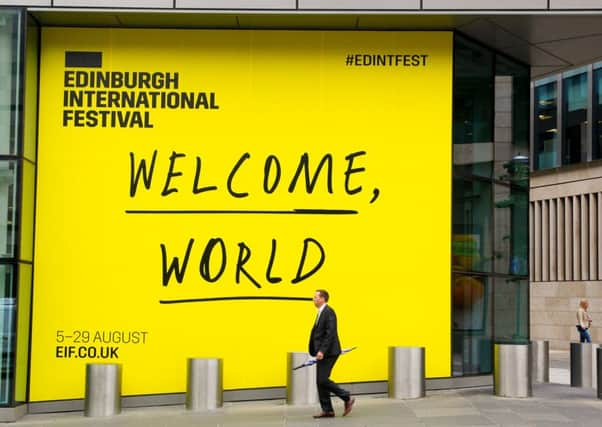Stephen Jardine: Festival-goers tend to forget old favourites


The world’s biggest arts festival is under way again with big implications for Edinburgh. A new economic impact assessment shows the various festivals deliver a combined audience equivalent to the attendance at the World Cup. The financial figures are stunning. Revenues rose by nearly 20 per cent between 2010 and 2015 with £280 million being pumped into the Edinburgh economy last year.
Food and drink are big winners in this. Research shows £37m was spent in cafes and bars last year, with accommodation occupancy running at 93 per cent during the month of August.
Advertisement
Hide AdAdvertisement
Hide AdAll of this should make Edinburgh a licence to print money for food and drink business this month… but the reality is more complicated.
When the Assembly Rooms closed for refurbishment, the focus switched from George Street to George Square and stayed there. To try to pull people back, Edinburgh embarked on an experiment with outdoor eating and drinking and this year that has reached new heights with dozens of pop-up bars across the city. For established businesses, that can be a challenge as festival-goers are wooed by the novelty of places that are here today and gone tomorrow.
Inevitably they will be attracting customers from existing local hospitality businesses who face year round costs but don’t get the high visibility or the chance not to be in business on a wet Tuesday in February. A leading bar and restaurant owner in the city shared his growing frustration: “On a personal level I love the atmosphere but from a business point of view, its frustrating. We’re the guys that for the 11 other months of the year pay business rates and have to abide by strict council guidelines on everything from waste collection to environmental health but a lot of this seems to be thrown out of the window if you pay to play.”
Then there is the additional strain on street cleaning and maintaining the public realm caused by all this pop-up activity. If you doubt the impact, a walk at through the heart of the city at breakfast time will make it obvious.
All of these would be petty gripes if there was a sense that Edinburgh was getting all the benefits from the festival but as the street based food and drink culture grows, it feels less and less connected to the city.
Getting to the bottom of the costs behind all this is very difficult.
“Charges experienced by each vendor vary depending on whether liquor licences apply and if they include a public entertainment licence. The same rates apply in August as other months,” a council spokesperson told me.
But should that be the case? Isn’t this a bumper month to charge what the market will take?
Advertisement
Hide AdAdvertisement
Hide AdEdinburgh should be the cleanest city in Britain. But where are the army of street cleaners funded by the Fringe or the free parking for residents in December to make up for disruption in August?
None of this is a criticism of the Festival itself. But those who seek to capitalise on it by turning every space into a bar or cafe in August need to understand that has a potential cost for businesses that call this home the rest of the year.